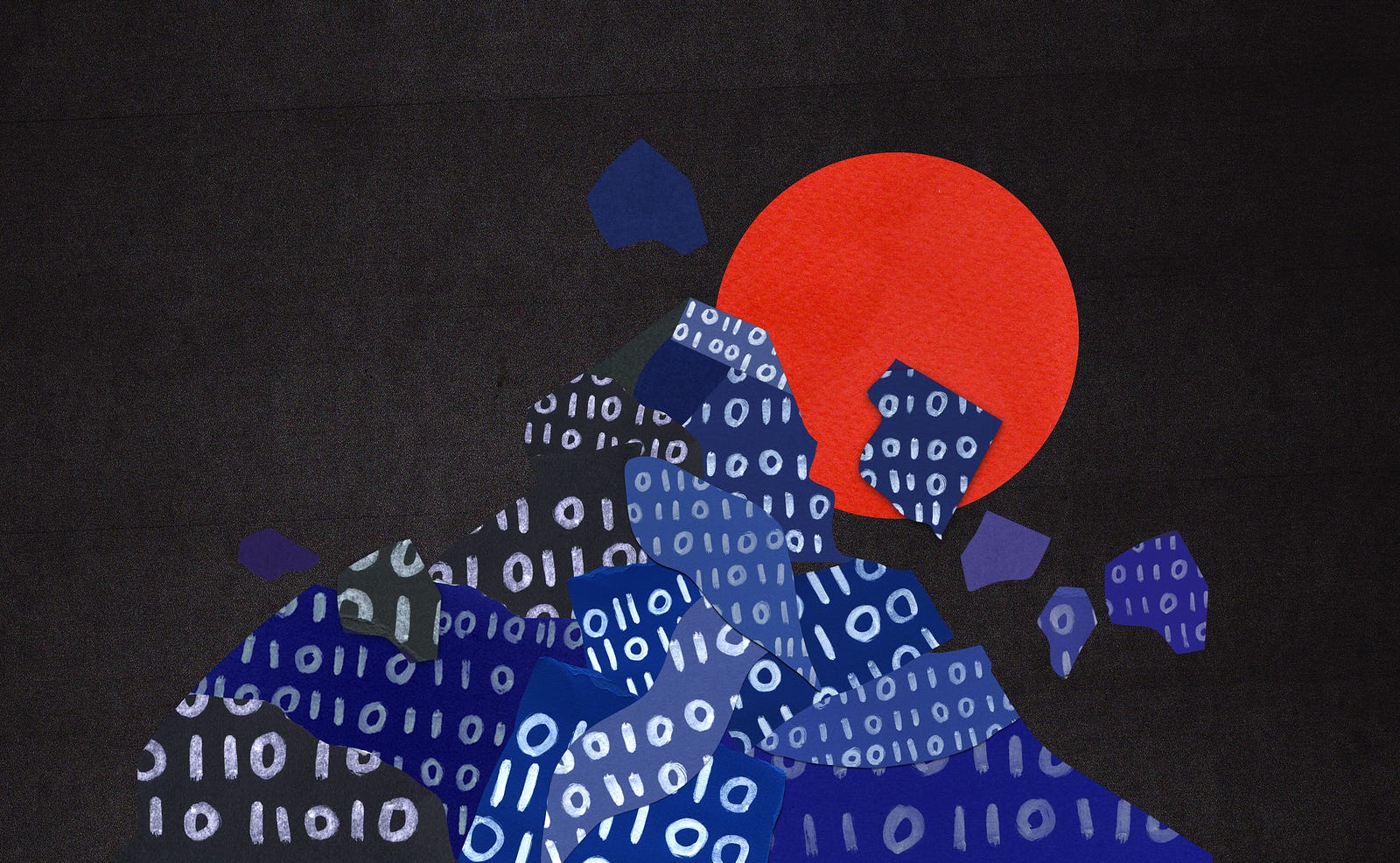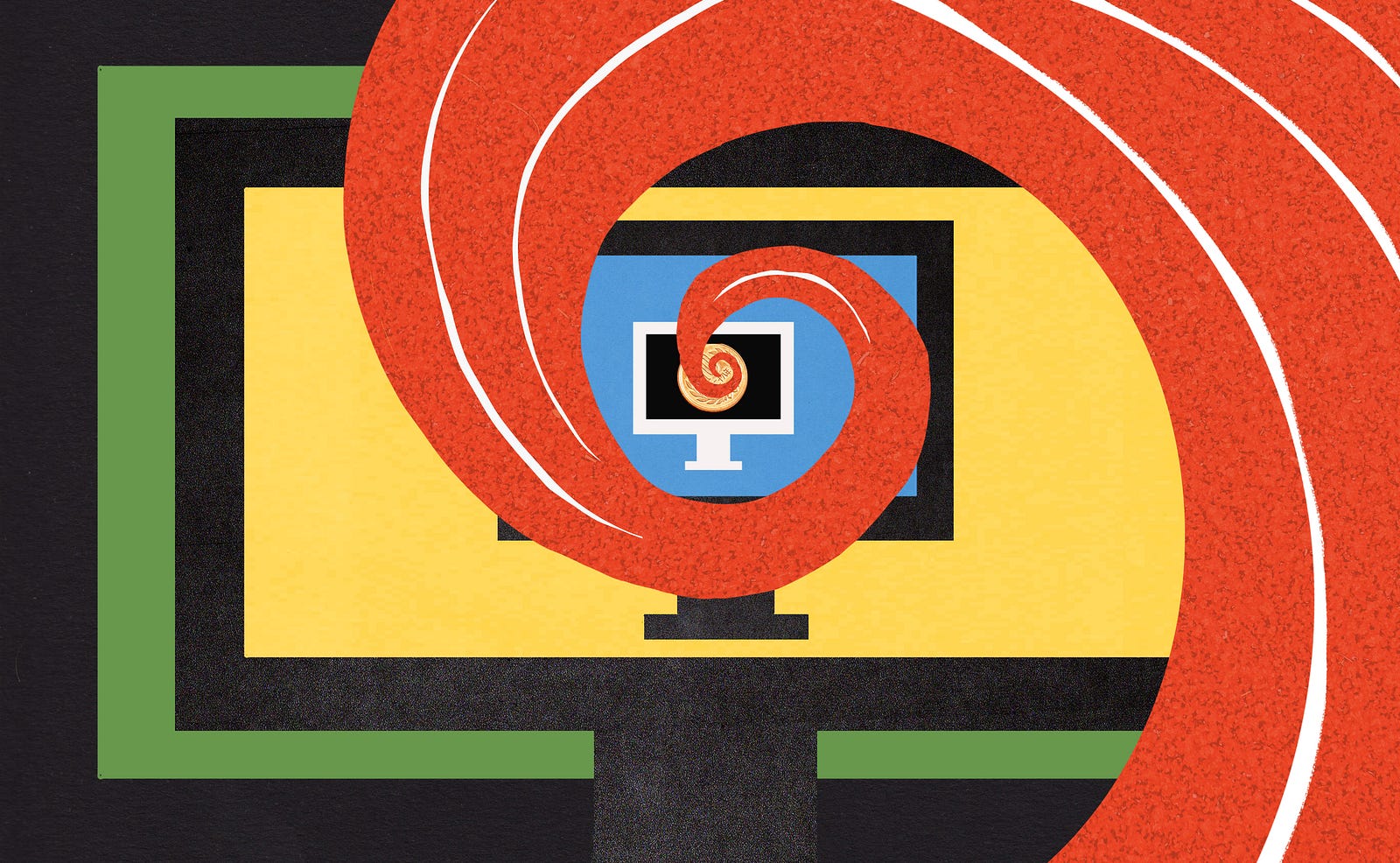By Mike Orcutt
Japan’s citizens have an expensive habit: paying for things with cash.
Most payments in the world’s third largest economy involve paper bills and metal coins. That sets Japan far apart from China and South Korea, where various “cashless” electronic payment schemes dominate, as well as the West, where credit and debit cards are much more popular.
That means the country also has a lot of ATMs — probably over 200,000 — as well as cash registers and fleets of vehicles for moving money around. It all adds up to an estimated $18 billion a year in costs, most borne by the financial industry.
Next year, hundreds of thousands of foreign visitors — most from countries where credit cards and digital payments are second nature — will descend on Tokyo for the Olympics. They’re expected to spend billions of dollars during the event, and Japan’s financial system simply isn’t equipped to handle it. Hundreds of millions could be left on the table.
Prime Minister Shinzo Abe says he wants 40% of payments to be cashless by 2025. In August, the government announced plans to offer tax breaks and subsidies for companies that get on board. And while everything from credit card payments to transactions using QR codes would qualify, some of the country’s biggest financial players think the way to wean Japan off cash lies in the technology that runs Bitcoin.
Mitsubishi UFJ Financial Group (MUFG), the country’s largest bank and the fifth largest in the world by total assets, has teamed with American internet company Akamai to build a blockchain-based consumer payment network in time for the Olympics. If they pull it off, it could be the fastest and most powerful consumer payment network to date. They claim that in tests it’s been able to handle more than a million transactions per second, with each transaction confirmed in two seconds or less, and say it could eventually achieve 10 million transactions per second. (Visa’s credit card network, by comparison, handles several thousand transactions per second. Bitcoin tops out at about seven transactions per second, and each transaction can take up to an hour to confirm.) The system is designed to handle all kinds of payments, from automated highway tolls to payment-card swipes to in-app purchases.
MUFG, which has also tested its own crypto-token, is far from alone. Mizuho Financial Group, a large holding company, has been experimenting with blockchain technology for several years as part of a project dubbed “J-Coin” and plans to release its own digital currency for retail payments in March. SBI Holdings, a big financial-services firm, says it’s building its own token, also for retail payments, called S Coin.
The wager all these companies are making is that Japan’s society is primed to start using digital cash. It is relatively technologically savvy, cryptocurrency trading has been uniquely popular in the country for years, and Japan’s financial regulators are more familiar with blockchain technology than any others in the world. With the government’s pressure to go cashless, and little competition from credit cards and other forms of e-payment, Japan could leapfrog the technology underlying today’s electronic payment networks and go straight to blockchains.
If the experiment works, the country’s economy might be remade. Everything from huge transactions between banks to small retail purchases could be carried out with barely any delay and at a fraction of the current cost; even today’s credit cards would be slow and expensive by comparison.
In the process, Japan will become the world’s biggest test bed for the decade-old idea that a cryptographic ledger and a network of computers can be used to create an electronic form of cash. It might even regain its position as a global leader in both finance and technology — a status it hasn’t enjoyed for decades.
The story of how it got to this moment, however, begins with a catastrophe.
The Legacy of Mt. Gox
Long, long ago in cryptocurrency time — which is to say, between 2010 and early 2014 — Tokyo-based Mt. Gox was the global online platform for buying and trading Bitcoin. In 2013, it accounted for 70% of all Bitcoin transactions. So when hackers made off with $450 million worth of Bitcoin from the exchange, causing it to collapse, the shock waves were felt worldwide.
The disaster was particularly traumatic for Japan, recalls Aya Miyaguchi, who at the time was working for Kraken, a US-based exchange that was one of the few competitors to Mt. Gox. “For the most part, people did not know anything about Bitcoin,” she says. When the news of the collapse broke, “many in the country panicked,” she says, and the Japanese media panned cryptocurrencies.
This worried Miyaguchi, a native of Japan who moved to the US 10 years ago and now heads the Ethereum Foundation. “I thought the entire ecosystem could be at risk without proper information and education,” she says. She felt a duty to help educate regulators, investors, and the public about cryptocurrency and blockchains.
Just a month after Mt. Gox’s meltdown, Miyaguchi met with Mineyuki Fukuda, an influential lawmaker in Japan’s ruling party who had been given the job of figuring out how to regulate the technology. She was struck by his foresight. “He saw this technology as bringing a potential competitive advantage to Japan,” says Miyaguchi. “We even talked about how we could use crypto for the Tokyo 2020 Olympics.”
Fukuda was not acting in a vacuum. In the late 1990s and early 2000s Japan’s tech industry, once the envy of the world, had lost big chunks of global market share to foreign companies, particularly in South Korea and China. The government was on the lookout for new industries in which the country could compete. Policymakers were particularly concerned about how Japan had fallen behind China in fintech, says Thomas Glucksmann, a former Mt. Gox employee who now runs Asian corporate partnerships for Diginex, a Hong Kong-based consulting firm focused on blockchain technology.
Fukuda decided not to slap down the cryptocurrency industry after the Mt. Gox collapse, but to cultivate it. Instead of immediately creating new rules for blockchain technology, the government set up an industry-led self-regulatory organization. Eventually, Japan rolled out the world’s first (and still only) licensing regime for cryptocurrency exchanges, which went into effect in April 2017.
The authorities were less forgiving after hackers looted half a billion dollars in January 2018 from Coincheck, an unlicensed exchange that was operating under an exemption. Japan’s Financial Services Agency (FSA) launched investigations of the nation’s cryptocurrency exchanges and ordered several of them to fix shoddy security practices. The regulators toughened up licensing, slowing new approvals to a halt; Coincheck, now under new management, finally got its license only this month.
Regulating cryptocurrency without hindering innovation is a challenge for many governments. But Japan seems to be striking a pretty good balance. After the Coincheck incident, the FSA “studied very hard about cryptocurrency and cybersecurity” and wound up better informed than most consultants in the industry, says Oki Matsumoto, chairman and managing director of Monex, Coincheck’s new owner. As with the Mt. Gox fiasco, the government turned the Coincheck hack into a teachable moment.
Inventing Crypto-Cash
There’s at least one more reason to think blockchain-based cash can succeed in Japan: retail investors there already love crypto.
The affection apparently stems from their affinity for trading foreign currencies. Japanese traders account for more than half of all global margin trading in the foreign exchange market. Of late, they’ve expanded to cryptocurrency trading, taking advantage of Japan’s bustling (and now regulated) exchange scene. It’s hard to pin down the Japanese cryptocurrency market’s exact size, but it has become Asia’s biggest market since China clamped down on trading in 2017. Analysts at Deutsche Bank say Japanese retail investors were a big reason why Bitcoin’s price shot up to almost $20,000 in late 2017.
Of course, cryptocurrency trading is popular in many countries, yet it isn’t used much in retail payments anywhere. Why should Japan be any different? Its retail sector is decidedly low-tech: most stores don’t even accept credit or debit cards. To shop online, people commonly print out a bar code at home and take it to a convenience store, where they pay in cash.
On the other hand, they aren’t completely averse to electronic payments. Prepaid card services like Suica, which are sold by the country’s major railway companies, are popular. Grocery and convenience stores tend to accept Suica cards, too. Andy Champagne, CTO of Akamai, is convinced that the pieces are in place for Japan to end its love affair with cash. “It’s an extraordinarily technical society, and a society that’s very interested in transacting digitally,” he says. Given the government’s push to go cashless fast, “it’s a unique opportunity at a unique time.”
But even if that’s the case, why blockchains? Today’s cryptocurrencies tend to be volatile unless they’re backed by fiat currency in a bank account. They are difficult to use and keep safe from hackers, and blockchain transactions that turn out to be fraudulent can’t be reversed. Third-party services like exchanges can have big security problems, as the Mt. Gox and Coincheck hacks showed. And the most popular blockchains are slow and require masses of computing power to secure the ledger, which gives them huge carbon footprints.
The systems Japan’s banks are building could change that. MUFG’s blockchain will run on Akamai’s servers. The company is skilled at building proprietary algorithms to deliver web content to users around the world, its core business. That expertise readily translates to running a network that’s more energy efficient, faster, and cheaper to operate than a public blockchain, Champagne says. So much so, MUFG believes, that even payments too small to make sense on traditional credit card networks will be feasible.
Will people in Japan really ditch their cash for blockchains, though? Yoriko Beal, cofounder of HashHub, a co-working space for blockchain startups in Tokyo, is skeptical. The popularity of Suica cards shows that it’s not outside the realm of possibility. But she believes it’s about utility, not about the underlying technology. Suica cards are very useful, so people adopted them, she says: “If MUFG and Akamai are so sure that using blockchain can reduce costs a lot compared to, like, using metro cards, it might happen.”
Mike Orcutt is an associate editor at MIT Technology Review, focusing on the world of cryptocurrencies and blockchains. His reporting, which includes a twice-weekly, blockchain-focused email newsletter, Chain Letter (subscribe here), revolves around one central question: Why does blockchain technology matter?
source: https://medium.com/mit-technology-review/will-people-ditch-cash-for-cryptocurrency-japan-is-about-to-find-out-5116d0565fba


Tidak ada komentar:
Posting Komentar